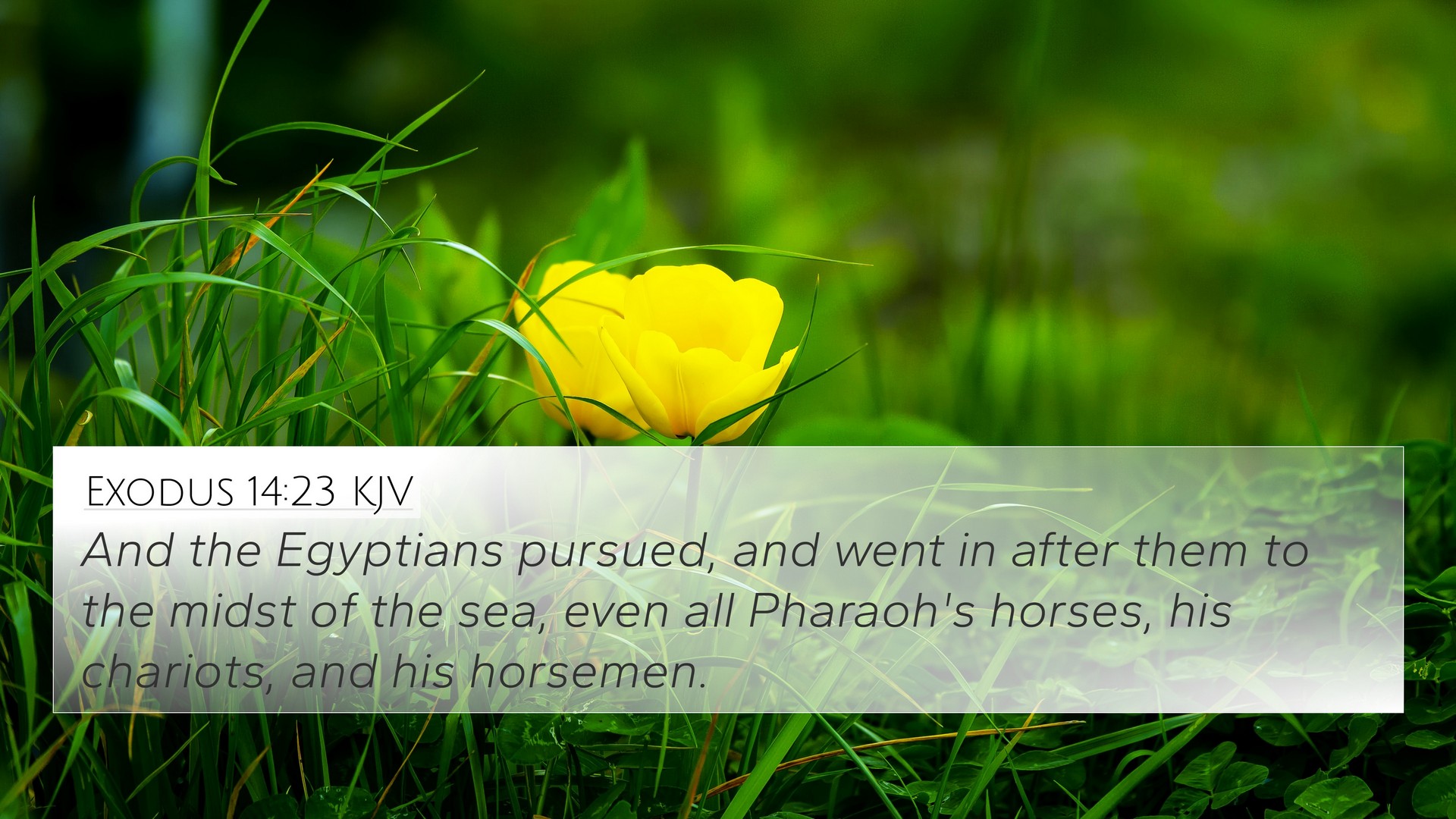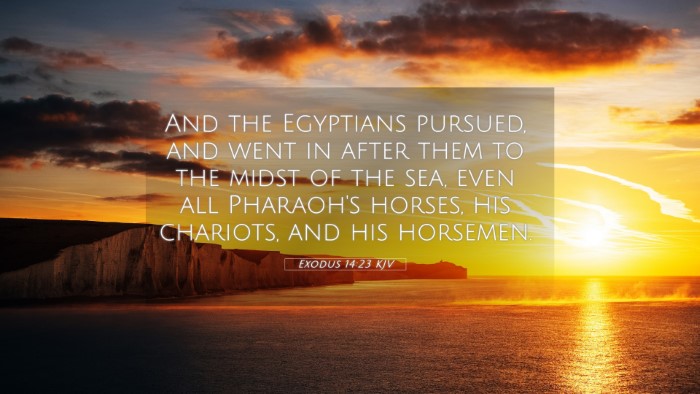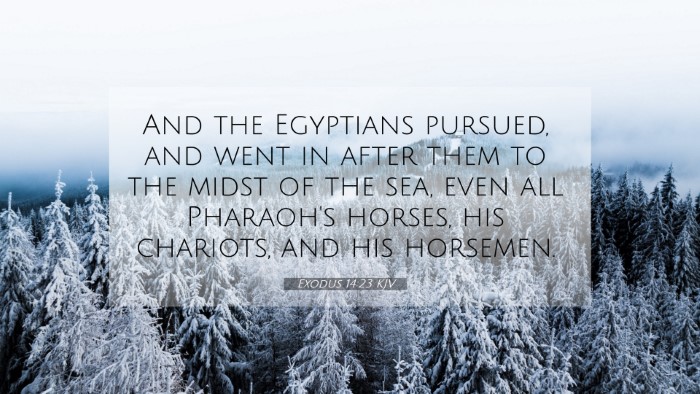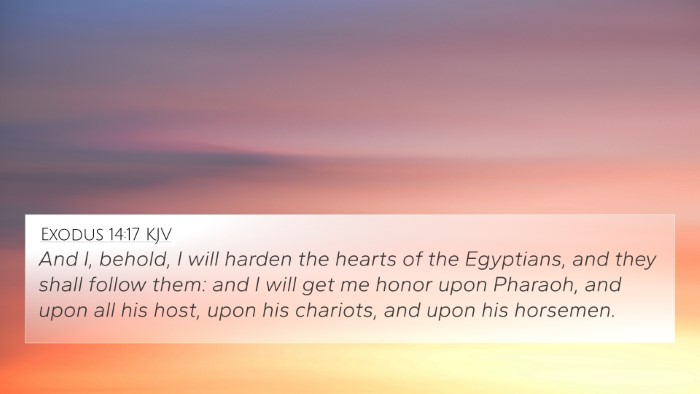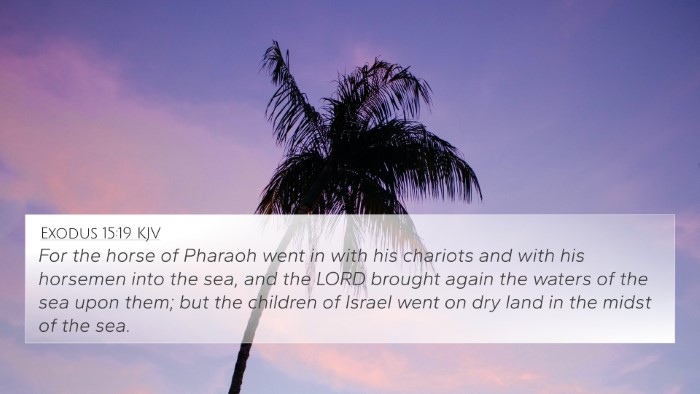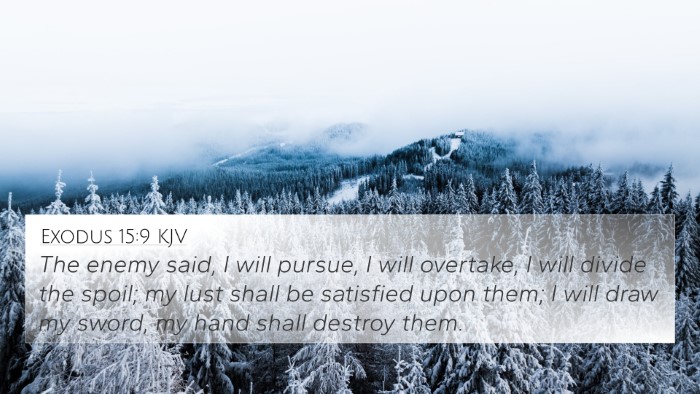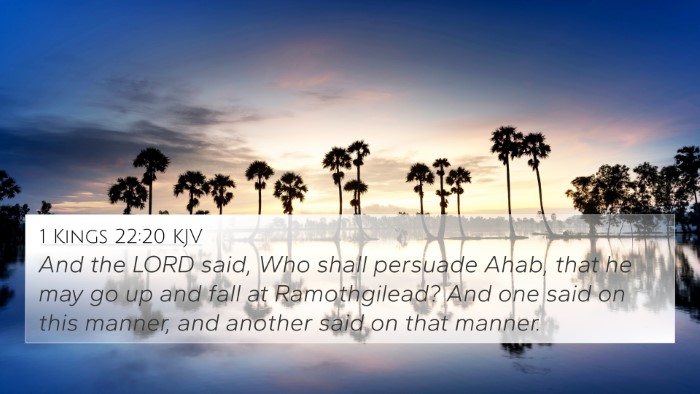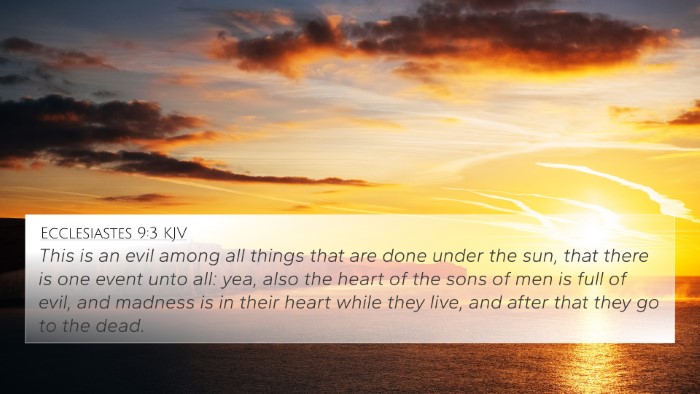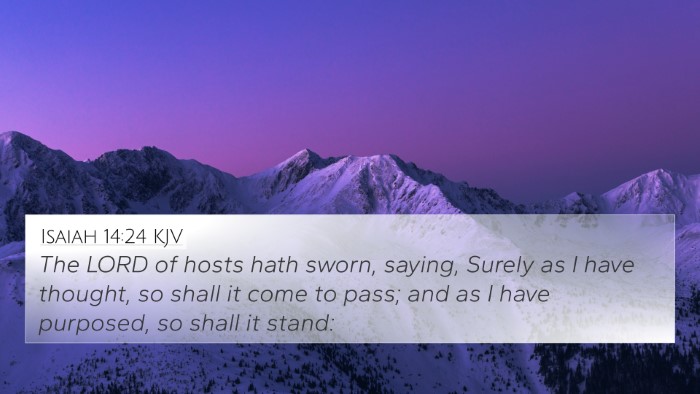Exodus 14:23 - Understanding the Verse
Exodus 14:23 states, "And the Egyptians pursued and went in after them to the midst of the sea, even all Pharaoh's horses, his chariots, and his horsemen." This verse captures a dramatic moment during the Israelites' escape from Egypt, highlighting the tensions between divine intervention and human defiance. Here we will explore the meanings derived from various public domain commentaries, including insights from Matthew Henry, Albert Barnes, and Adam Clarke.
Thematic Overview
This event occurs at the Red Sea, where Moses, led by God, parts the waters to allow the Israelites to cross on dry ground, while the Egyptians, following in pursuit, ultimately meet their doom. This powerful scene represents a pivotal moment in Israel's history, showcasing themes of salvation, judgment, and divine protection.
Insights from Commentaries
-
Matthew Henry: Henry discusses the audacity of the Egyptians and the misjudgment in pursuing the Israelites into the parted sea. He emphasizes the contrast between God’s saving grace for His people and the inevitable judgment on their oppressors, illustrating the principle that defiance against God leads to downfall.
-
Albert Barnes: Barnes notes the significance of Pharaoh’s forces entering the Red Sea. He explains that their pursuit is emblematic of humanity’s relentless struggle against divine will, and its futility. This scene foreshadows the ultimate victory of God over all adversaries and asserts that God’s plans will not be thwarted, highlighting a profound theological truth.
-
Adam Clarke: Clarke refers to the Egyptian army's relentless pursuit, interpreting it as a manifestation of pride and hardness of heart. He reflects on how such obstinacy blinds one to divine realities, ultimately leading to disaster, reinforcing the notion that those who oppose God’s chosen will face grave consequences.
Bible Verse Cross-References
Understanding Exodus 14:23 can be enriched through cross-referencing it with related Bible verses that illuminate its themes of salvation and divine judgment:
- Psalm 106:7-12: This passage recounts the Israelites' plight, praising God for delivering them from Egyptian oppression.
- Isaiah 43:16-17: Here, God reaffirms His power to make a way through the sea and destroy adversaries, echoing the events at the Red Sea.
- Hebrews 11:29: The faith of the Israelites in crossing the Red Sea is highlighted, pointing to their trust in God’s deliverance against daunting odds.
- Revelation 15:2: The song of Moses, which praises God for His mighty acts, directly connects to the themes of victory found in Exodus captures divine sovereignty over evil.
- Numbers 14:13-19: This recounts God's mercy despite rebellion, highlighting a recurring theme of divine judgment and mercy throughout Israel's narrative.
- 1 Peter 3:20: Peter references the judgment of Noah’s day as a parallel to the Egyptians’ fate, emphasizing God's judgment through historical context.
- Romans 9:17: Paul's discussion about Pharaoh's heart, referencing Exodus, draws a line between divine purpose and human rebellion, embodying the struggle depicted in Exodus 14.
Connecting Themes in the Biblical Narrative
The story of Exodus 14:23 creates significant thematic connections throughout the Scripture. Understanding these themes helps readers recognize the continuity within God's plan for humanity.
Salvation and Deliverance
The act of parting the Red Sea and the subsequent judgment of the Egyptians is a profound illustration of salvation. This theme recurs throughout the Bible, culminating in the New Testament's fulfillment of salvation through Jesus Christ. Just as God delivered the Israelites, He offers deliverance from sin through Christ.
Divine Judgment
Exodus 14 serves as a poignant reminder of divine judgment against those who oppose His will. The destruction of Pharaoh's army highlights a consistent Biblical theme where God acts against oppressors throughout the Scriptures - a theme that appears in books like Isaiah and Revelation, where the finality of God's judgment is also expressed.
Faith and Obedience
The response of the Israelites in faith, as chronicled in Hebrews 11, delineates faith as essential to experiencing God’s deliverance. This encapsulation of faith acting in obedience is vital for understanding how believers must live in light of God’s promises as seen in both Old and New Testament texts.
Tools for Bible Cross-Referencing
For those interested in further engagement with scripture, numerous resources can facilitate deeper study:
- Bible Concordance: A reference tool that helps locate specific verses and themes across the Bible.
- Bible Cross-Reference Guide: Books or online tools designed to illustrate how verses relate to each other.
- Bible Reference Resources: Online platforms and software aimed at enhancing Bible study through cross-referencing methodologies.
- Comprehensive Bible Cross-Reference Materials: For those undertaking thorough Biblical study, multiple resources exist to facilitate exploring interlinked scriptures.
Conclusion
Exodus 14:23 serves as a powerful narrative of God's deliverance and judgment, enriched through a study of related scriptures and commentaries. By exploring the connections between Scripture, believers can gain a deeper understanding of God's overarching narrative through salvation, judgment, and faith. These connections not only provide insight into historical events but also clarify fundamental theological principles that resonate throughout the Bible, reflecting God's unchanging character and promises.
